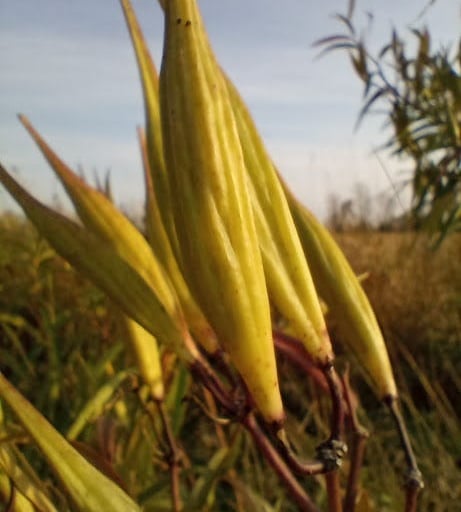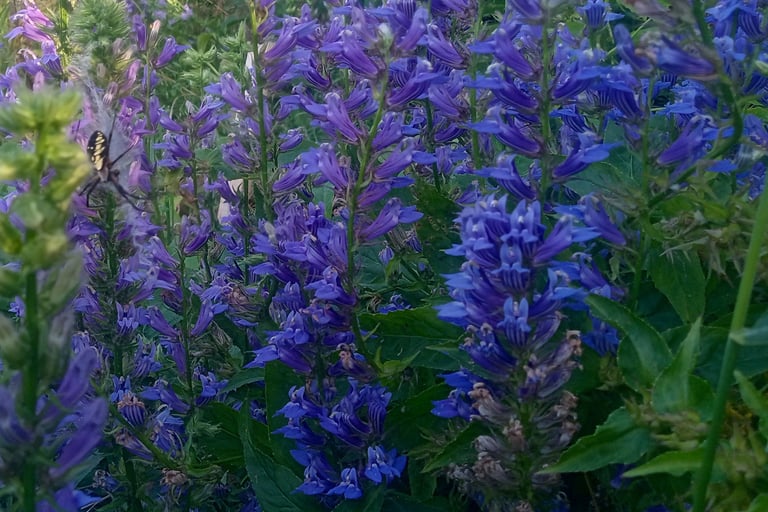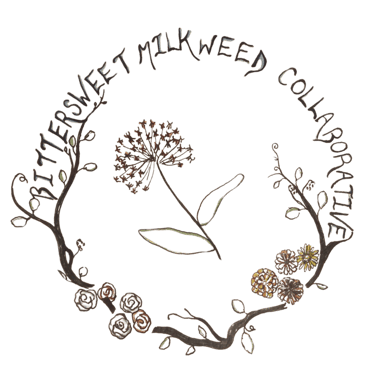November 2024: Any Small, Calm Thing
Daily Farm Life During A Worrisome Time
Kia-Beth Bennett
12/3/20246 min read
“Ours is not the task of fixing the entire world all at once, but of stretching out to mend the part of this world that is within our reach. Any small, calm thing one soul can do to help another soul, to assist some portion of this poor, suffering world, will help immensely. It is not given to us to know which acts, or by whom, will cause the critical mass to tip toward an enduring good. What is needed for dramatic change is an accumulation of acts, adding, adding to, adding more, continuing. We know that it does not take everyone on Earth to bring justice and peace, but only a small, determined group who will not give up during the first, second or hundredth gale.
You Were Made For This, Clarissa Pinkola Estes
---
Given you’re reading this November newsletter in December, I imagine it’s clear I’ve had trouble writing it. Maybe we call this the “November Reflections” - see, I had to wait until the end of the month to reflect. Obviously.
And reflect I have been. November was a tumultuous month on the farm. Relationships were forged and dissolved, birth and death have both been close at hand, and weather patterns turned heads daily. Today, I’m riding on the high that my darling Irish Dexter bull calf, Thyme, has found a happy home at Sand River Community Farm, and I’m excited to see eight of the piglets here leave for Akwesasne, where they will grow and thrive and become food for two dozen families. After a long, mentally foggy Autumn, the first snows of Winter have brought me clarity and recuperation. They also, apparently, brought me a broken furnace, but I’m waiting on the repair crew now, so….
But I digress. Lately, I’ve been contemplating the farm’s holistic role as life in this country (world) gets harder and harder for almost everyone. Since 2000, we’ve been a sort of socio-ecological-political experiment. It’s no secret we strive to offer refuge and opportunity for non-humans and humans alike, restoring habitats and teaching folks to farm. I’ll be the first to admit - sometimes it doesn’t work the way I’d like it to. Some relationships are just not going to last, and those connections will be more burden than blessing.
But that’s okay. I say that as someone actively learning that that is, in fact, okay, and that there may truly be “no such thing as one-way liberation.” I also say that as someone genuinely frightened about what the next four - or more - years hold for my community, this nation, the whole planet. I’m worried about what the anti-existence laws mean for myself and fellow queers, about what tariffs will do to the price of steel fenceposts. I’m worried because I live in world where my neighbors think rape and deportation is okay. Or what happens if my friends find themselves pregnant with no options? Will my community hold? Will I be able to offer the support others need, and will they offer support in return? My concerns are based on modern and historic examples. If we examine other autocratic countries we see clear, repeated abuse of humans, non-humans and communities, moving beyond those already practiced in the USA - which are indeed extensive.
Many people, I recognize, might tell me to “stay in my lane” - that growing food is not political. But food became political the minute governments started locking it away, using it as a manipulation tactic to destroy the inherent giving nature of human cultures. And so every day I commit myself to a life-centered movement and a world beyond that of capital-colonialism. What that currently means for my daily existence is this:
Faith as a practice, not just a vague belief. I write not of religious faith, but of faith in those around me. If I want to know that my community will nourish each other, then I make the first move. In November, I began a county-wide Google Group for gardeners and farmers, developing another way for us to connect, share and communicate across a large landscape. We’re eighteen growers strong and building. If you live in St Lawrence County, New York, contact me if you’d like to join.
Sharing, because generosity is not a privilege, but an open door. I have a dear friend, a former farmer, who, for a variety of reasons, is now incredibly food insecure. Last week, I showed up at his place with a carload of the food I’ve grown. I know that he would do the same for me, but guess what? It wouldn’t matter if he did or not. We’re all just human. We should eat.
Ecology as a matter of course. This being my true passion makes it easier than other tasks, but hey - if I’m getting joy out of a basic activity, that’s wonderful. So I plan grassed waterways, install bat houses, identify insects and build compost piles. I’m applying to several programs that will help support bird-friendly grazing, and in February, I’ll be co-leading a discussion on small-scale, low-budget farm conservation.
Demanding less of myself. One reason this newsletter is later than usual is because I spent last week mostly in bed, reading and watching videos. That’s also okay, I promise. If I, the perpetually overworking farm fanatic, can designate space for sleeping, creativity, eating and showering, so can you. It’s definitely the part of my day that takes the most thought, but it’s worth it and important.
Denouncing shame and finding alternatives. I like routines and habits, but this year I’ve pushed myself to do away with the guilt-tripping, self loathing and shame that comes with breaking away from “what we’ve always done.” When I couldn’t grow enough cucumbers to make my mother’s relish this year, I used unripe pumpkins instead. I was ecstatic to be able to adapt her legacy to my present reality. We’re running low on meats because I haven’t had the energy to butcher animals, so I’m learning more about the odd cuts left in the bottom of the freezer - bones, organs, and half-pound packages of half-used sausage. I’m embracing the idea that I don’t have to be ashamed - I can just exist.
Consistent outreach to those who are also scared. On November 6, I texted 23 different people, making sure they were safe and that they knew I’m happy to be their first point of contact for whatever they need - their medical emergency phone call, their late-night suicide-watch buddy, their goat-sitter. I can’t do it for everyone, and there are people who wouldn’t be comfortable if I tried. But for now, I designate one day a week to contacting loved ones. I’ve found they’re reaching out more, too. One friend’s comment even led to the creation of a twelve-page action plan: how we can support, protect and care for ourselves and each other in an increasingly dangerous, frightening, yet still gloriously beautiful world. It’s regularly updated and can be found here.


And in the end, life still goes on. The farm isn’t as ready for Winter as I’d like, but every day we’re finishing barns, preparing for piglets, thawing hoses, sorting pumpkins and learning anew. Brian and I went to a lovely Friendsgiving last week, with some of our favorite people. Tomorrow I’ll be wrapping trees and moving hay, and this weekend we’ll slaughter two bulls, who will be properly butchered by ourselves and two other families in a few weeks. And every day, I make myself remember the little poster I hung in the Solarium, the one that reminds me so much of my mother. In it, two characters are talking,
“Aren’t you terrified of what next year could be like? Everything is so messed up.”
“I think it will bring flowers.”
“Yes? Why?”
“Because I’m planting flowers.”
Plant flowers, my friends. Plant flowers. I promise you they’ll bloom.
Much Love,
Kia
P.S. If you’re not quite sure where to scatter seeds, I can also promise you that no matter what, we at the farm will keep moving forward. If that’s work that you feel good about supporting, I’d love to let you know that we’ve created a paid subscription option for this account, one that simply allows you to help us continue our efforts. We’re also developing a volunteer schedule, and we’re always - always - on the lookout for fencing materials, if you happen to have some lying around.


